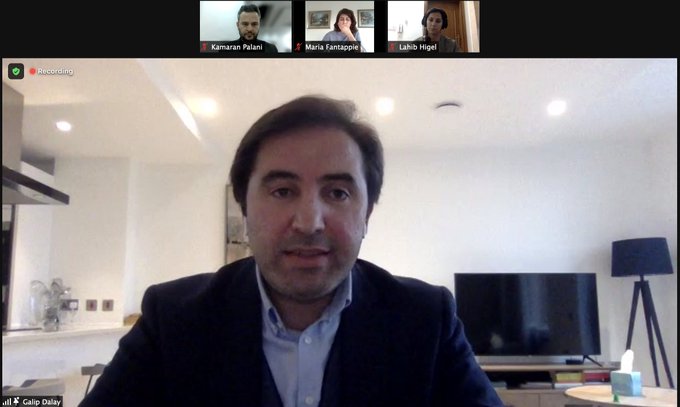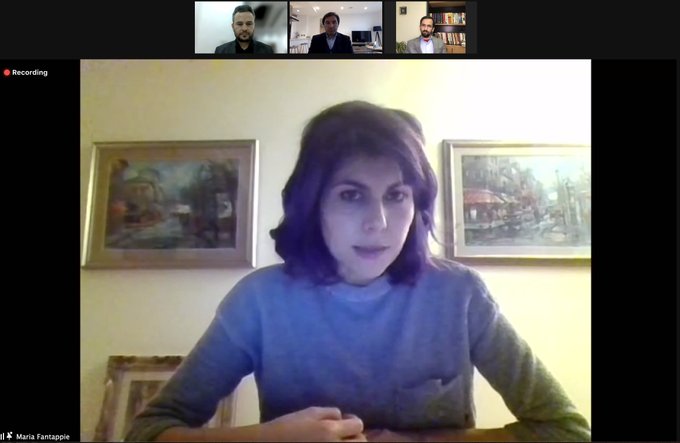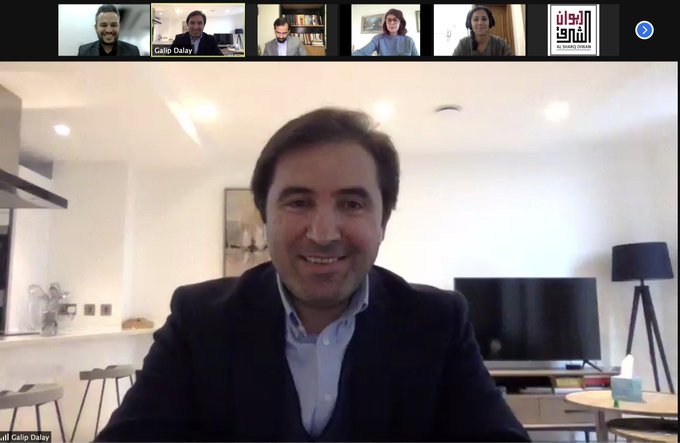Well that's a lie.
I've never watched all of the final season. We knew the show was coming to an end. I saw when Fran learned she was pregnant and Nora Dunne was her doctor. But I've never watched beyond that -- not even in syndication. Sorry.
I'm sure it's great and all, the end of the show. But I just couldn't say goodbye to it. I didn't watch the end of WILL & GRACE's first run until the revamp started. And Stan will tell you that he's never watched the final episode of FRIENDS despite loving the show and owning all seasons on DVD because he didn't want to see it end. So I guess I'm not alone.
But I did love the show.
Back to Eartha.
I reviewed John "John L. Williams' AMERICA'S MISTRESS: EARTHA KITT, HER LIFE AND TIMES" and I discussed it at THIRD "KINDLE UNLIMITED (Betty, Ava and C.I.)" and for $1.99, I can't complain about the digital book too much, I guess.
John L. Williams' AMERICA'S MISTRESS: EARTHA KITT, HER LIFE AND TIMES."
That said, America Selby's WHO IS THE GREAT EARTHA KITT? is a much better book -- and it's fre to read if you have KINDLE UNLIMITED. This providies the contexxt that is mssing from Williams' book. And it also doesn't reat Eartha like she's an idiot.
Or a liar.
Let me go to liar. I was really offended by the way Williams dismissed Eartha's conversations regarding her parents. I think she's better geared to know who her mother was. I also think that if she has no father of record Williams needs to grasp that he's proven nothing by advancing his claim as to who Eartha's father was. I might have been more charitable about his 'sleuthing' (years, after everyone is dead and all he knows is that the man was White) if he hadn't been so dismissive of Eartha over who her mother was.
Selby takes her at her word -- and why wouldn't you?
Now for the idiot aspect.
I didn't go into that. I had planned to in the discussion with Ava and C.I. because I knew C.I. would know.
In 1968, while playing Catwoman on TV, Eartha was invited to the White House and told Lady Bird some truths about Vietnam. This got Eartha banned for years.
According to Williams, she's an airhead that doesn't know what she's talking about and made no sense. White, British guy, do you think Eartha's skin color makes her stupid? Because that is how it came off. Selby, by contrast, quotes Eartha and notes that she was well spoken and a woman who had traveled the world by this point and spoke multiple languages, plus she was volunteering with a youth center. She's in her forties by this point and Williams doesn't think she's capable of making a coherent statement against the war?
That just really ticked me off.
Now America Selby's book is much briefer but it lets the moments register and it provides context. I highly reccomend WHO IS THE GREAT EARTHA KITT?
I also highly recommend Diana Ross' THANK YOU. A fantastic album. I am loving it. It is wonderful and I cannot praise it enough. If you like Diana, you are going to love this album. One of the songs features a synchopated vocal like on "Now That You're Gone" (diana album) or "Not Over You Yet" (EVERY DAY IS A NEW DAY album). I love all the songs and even the ones that I loved as singles work so much better on the album in the context of the other songs.
I scream, SCREAM, THANK YOU back to Diana because she's given her fans like me the greatest gift with this album.
Trina did a book review this week that you should check out, "A A Novellie's Joan Rivers: The World's Funniest Funny Lady, Her Life & Tragic Death." Also check out the following media and book coverage at THIRD:
- TV: How difficult is it in 2021 to do a special ab...
- Remembering Mort Sahl (Ava and C.I.)
- KINDLE UNLIMITED (Kat, Ava and C.I.)
- KINDLE UNLIMITED (Betty, Ava and C.I.)
- KINDLE UNLIMITED (Ann, Ava and C.I.)
- KINDLE UNLIMITED (Jim, Ava and C.I.)
- Magazines (Jim)
"Iraq snapshot" (THE COMMON ILLS):
Go out and take somebody by the hand
Put on your shoes and find out where you stand
Go take the lead and teach the world to dance
While life is busy making other plans
Jump off the edge and find out where you land
Go take the lead and teach the world to dance
So much better if the world just danced (we'd be better)
So much better if the world just danced (we'd be better)
Yeah, we'd be better if the world just danced (we'd be better)
Several big stories came out of Iraq’s sixth election since the 2003 US-led invasion. The first is low voter turnout which officially at 36 per cent of eligible voters is the lowest recorded in the country’s post-2003 electoral history. is the lowest recorded in the country’s post-2003 electoral history. With many Iraqis disillusioned with a political system which entrenches a corrupt political elite at their expense, this was expected, reflecting a trajectory of fewer Iraqis voting in each election.
More surprising is the relative success of Muqtada al-Sadr’s movement, which increased its seat tally from 54 in 2018 to 73 according to preliminary results while its main rival from the previous election Fateh – which represents the Popular Mobilization Forces – saw a decrease from 48 to only 16.
This result suggests Sadrists have increased in popularity while Fateh’s support has declined, but the vote total reveals a different story. While the Sadrists outperformed their rival in seat count, the two sides received a similar number of votes. In fact, according to preliminary numbers, Fateh and allies received more votes than the Sadrists but secured less seats, with Fateh receiving an estimated 670,000 votes while the Sadrists received 650,000.
This discrepancy highlights a key aspect of the new 2019 electoral law. As a recent Chatham House Iraq Initiative paper highlights, the newly adopted single non-transferable vote (SNTV) – a first-past-the-post (FPTP) system conducted within multi-seat constituencies – was intended to create a more transparent electoral process by removing the need for complex seat allocation algorithms and forging a closer link between voters and the elected.
Four years ago, the stream running through Iraq’s al-Hamra village dried up. Now, “all the trees have died”, said Abdullah Kamel who used to farm citrus fruit in the village in Saladin governorate north of Baghdad.
The farmers subsequently tried digging wells but found the groundwater was too salty and not suitable for farming. “It killed the trees and all our crops,” said Kamel.
Pulling a pomegranate from a nearby tree, he cracked it open on the dusty earth. Pale, crumbly seeds fell out. “The seeds are not edible,” he said.
The lands around al-Hamra, which used to be fields and orchards, have become like a desert within the space of a few years, said Kamel, with the streambed reduced to a dry ditch.
AUDIE CORNISH, HOST:
In Iraq, a prolonged drought has dried up lakes and brought rivers to such low levels that the Iraqi government says the country can farm just about half the land it normally would. The United Nations Environmental Program says Iraq is the fifth-most vulnerable country in the world to the effects of climate change. NPR's Ruth Sherlock traveled to a rural province there to hear how farming communities are surviving.
RUTH SHERLOCK, BYLINE: In Iraq's Diyala province, an hour northeast of the capital, Baghdad, much of the farmland looks abandoned.
(SOUNDBITE OF FOOTSTEPS CRUNCHING GRASS)
SHERLOCK: We walk over dry grass to meet a group of farmers that stand beside a cultivated patch of ground near a home-dug well.
HAMEED ALI MATAR: (Speaking Arabic).
SHERLOCK: Before, this land was known as the food basket of Baghdad. Farmer Hameed Ali Matar says now it's like a desert. I ask him what he would normally grow at this time of year.
MATAR: (Speaking Arabic).
SHERLOCK: NPR's translator, Awadh Altae, interprets.
MATAR: (Through interpreter) Normally, in the previous years when you came here, you can see it's all green - different kinds of corn and cucumbers - everything is green here. Well, this year is totally different.
SHERLOCK: He says what he grows now isn't even enough to feed his family of 10.
MATAR: (Through interpreter) We never buy anything. We have everything, like milk, yogurt, bread. But now, we buy 90%.
SHERLOCK: Matar is one of thousands of Iraqi farmers struggling to cope in a prolonged drought. There's been less rainfall for several years now. But this year, they say, is the worst they can remember. In a call with NPR, Hamid al-Nayif, the spokesman for the Ministry of Agriculture, lays out the scale of the problem.
HAMID AL-NAYIF: (Speaking Arabic).
SHERLOCK: He says, last year, the country cultivated 16 million dunams - or 160,000 hectares - of land. This year, they expect to grow on only a third of that land, maybe half if there's rain.
AL-NAYIF: (Speaking Arabic).
SHERLOCK: The lack of rainfall is the big problem. It's led Turkey and Iran to draw more from the Tigris and Euphrates rivers, and that means there's less water when these rivers flow into Iraq. There are local reasons for the water shortages, too, like inefficient irrigation systems and cracked pipes. But the Agriculture Ministry and climate experts working with them all tell NPR, climate change is exacerbating the crisis, with Iraq experiencing longer, drier and hotter summers and less annual rainfall. In Diyala province, in mid-October, the temperature is still almost a hundred degrees Fahrenheit.
We're here on what's a relatively cool day in Iraq, but it is still so hot. The air is thick with the heat. The sun is beating down. The air is dusty. Farmers say this is the first time they can remember that the lake that they rely on to water these fields is dry.
If you tap the ground, it's hard as rocks.
“Over the past 40 years, Iraq has been swept by wars and conflicts so it is classified as one of the most vulnerable nations in the world because of climate change,” Salih said. “Desertification affects 39% of our country and 54% of our agricultural lands are degraded because of salination caused by reducing water flow of the Tigris and Euphrates. Seven million Iraqis have already been affected by drought, climate change and the risk of displacement.”
The president’s virtual remarks come after he canceled his trip to Glasgow last minute. An informed source said the president's decision to stay in Iraq is a result of the tensions and ongoing negotiations to form a new government following last month's elections.
Flying over southern Iraq at night, the sky burns orange. Heaven and earth are illuminated by dozens of flaming towers in the oilfields scattered across the desert. The towers – known as flare stacks – burn off gases released during the production of crude oil, the black gold that provides more than 90 per cent of the Iraqi state’s revenues.
Iraq is the world’s second-worst offender when it comes to gas flaring, according to a recent World Bank report, after Russia. Every year, the country’s flare stacks emit billions of cubic metres of carbon dioxide, polluting the local environment and making life miserable for people who live and work near the oilfields.
The scale of the gas flaring falls in line with Iraq’s significant crude oil output. The country is the second-largest producer in the Opec group, pumping 4.34 million barrels a day, according to an independent analysis by Iraq Oil Report.
For decades Iraq has relied on oil to fund a bloated public sector at the expense of economic diversification. But as Iraq’s delegation, headed by President Barham Salih, arrives in Glasgow for Cop26, the country faces enormous challenges in combating the effects of climate change. A combination of years of conflict, poor governance and a lack of awareness leaves it ill-equipped to implement the needed reform. A rapidly growing population – the number of Iraqis is expected to double to 80 million by 2050 – adds even more pressure.
“I can count on one hand the number of leaders that are even aware of the urgency of the situation,” said Azzam Alwash, a member of Iraq’s Cop26 delegation and founder of Nature Iraq, a non-governmental organisation. “That is how bad the situation is, politically speaking.”
Gas flaring is just one factor contributing to the climate crisis. A crippled electricity grid forces Iraqis to rely on power generators that belch diesel fumes into the air. Low rainfall and damming on rivers upstream in Turkey and Iran have caused water levels to plummet. Plastic and sewage fill waterways because waste management systems don’t work. This year, there have been widespread crop failures, drought-induced migration and an increasing sense of panic among people who rely on the land to survive.
“We see more migration towards the cities that are already struggling with poor water and power infrastructure,” said Maha Yassin, a researcher at the Planetary Security Initiative of the Netherlands-based Clingendael Institute. “This is creating social tensions, and maybe more internal conflicts.”
Iraq is making some efforts to mitigate the effects of the climate crisis. The country has pledged to reduce CO2 emissions by 2 per cent in the public sector and 15 per cent in the private sector by 2030. The pledge is made with a condition, though – that there is “stability and financial support”, said Alwash. Despite the territorial defeat of the Islamic State (IS), security in Iraq is still unstable: there are frequent deadly attacks by IS insurgents and armed disputes between tribes.




